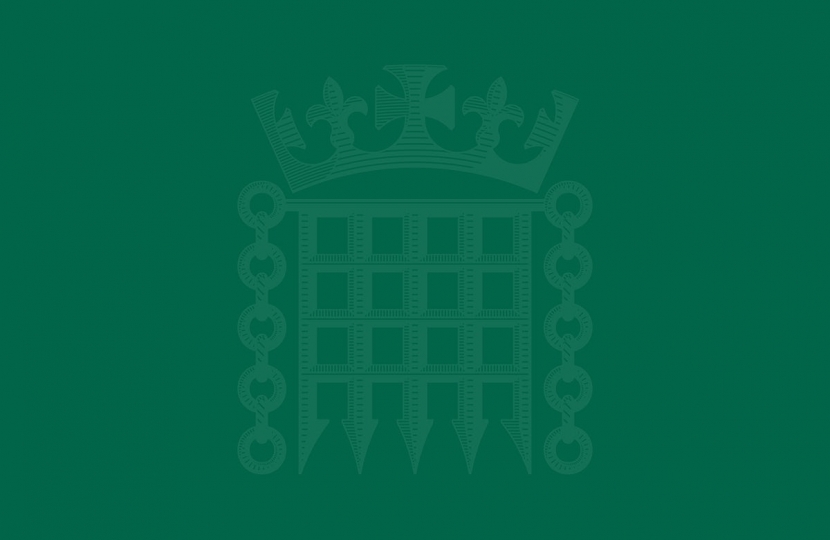
Yesterday the Conservative Party and the Democratic Unionist Party (DUP) agreed to a confidence and supply deal, which will allow us to deliver the most stable Government possible.
I want to reassure you that this deal does not change my own views, nor indeed my party’s long held position, on LGBT rights, climate change, social issues and the equality of women. Many of you have been in touch with me to voice entirely legitimate concerns about positions that the DUP holds or has held in the past.
This confidence and supply agreement means that the DUP’s ten MPs will vote with the Government on issues of national importance to the whole United Kingdom such as security and defence, budgets and motions of confidence.
However, the DUP will not have Ministers in the Government and their views on social policy will not be relevant to UK Government policy or English law affecting areas of devolved competence. Many of the key areas where people have raised concerns such as on environment policy, women’s rights and LGBT rights are already devolved so there is a different legal approach in Northern Ireland to that in England in any case.
On the issue of abortion which is currently legal in England and Scotland, but illegal in Northern Ireland, the DUP’s policies are identical to their opponents in the SDLP, Labour’s affiliated sister party in Northern Ireland and have no application to mainland Britain. I have always supported keeping these issues out of party politics and treating them as issues of conscience for individual MPs, something that also applies to the debate over assisted dying.
In recognition of our commitment to support growth across all parts of the United Kingdom, the Government has agreed to provide £1.5 billion in financial support to Northern Ireland. This funding will be invested in areas of development that will most benefit the people of Northern Ireland and Great Britain as a whole, with £400 million to improve infrastructure and £100 million for the transformation of health services.
In previous years, the UK Government has agreed to provide this kind of financial support to cities such as Glasgow, Cardiff and Swansea, and since 2014 has invested over £1 billion in Scotland and Wales. The Government is committed to ensuring that all parts of the UK are properly reflected in the future UK Shared Prosperity Fund as we exit the European Union.
There are some misleading campaigns against the DUP that suggest they are in some way a fringe movement or associated with terrorism. In fact, the DUP have been a key player in power sharing for years, having worked with both the Labour and Conservative Party regularly in the past. Furthermore, Gordon Brown and Ed Miliband both approached the DUP with a view to forming a similar confidence and supply arrangement, in 2010 and 2015 respectively.
In regards to our future relationship with Ireland, the Government has made it a priority in the Brexit White Paper to protect the UK’s strong and historic ties with Ireland, maintaining not only the Common Travel Area and the absence of a hard border with Ireland but also the special rights and recognition which Irish citizens enjoy the UK.
Both the EU and the UK want to put the Northern Irish Peace process and the issue of avoiding a hard border at the heart of the negotiations and I have welcomed the fact that the interests of London, Dublin, Belfast and Brussels appear to be aligned on this issue.